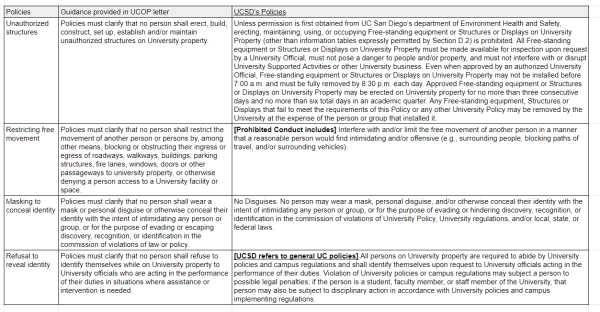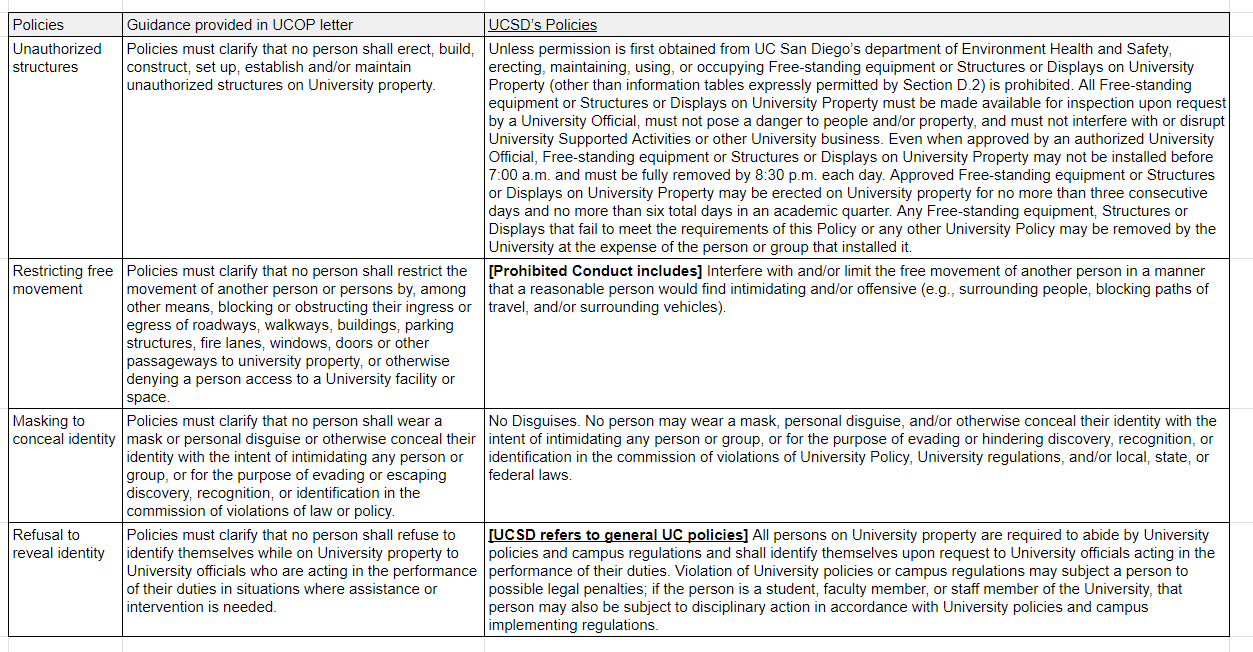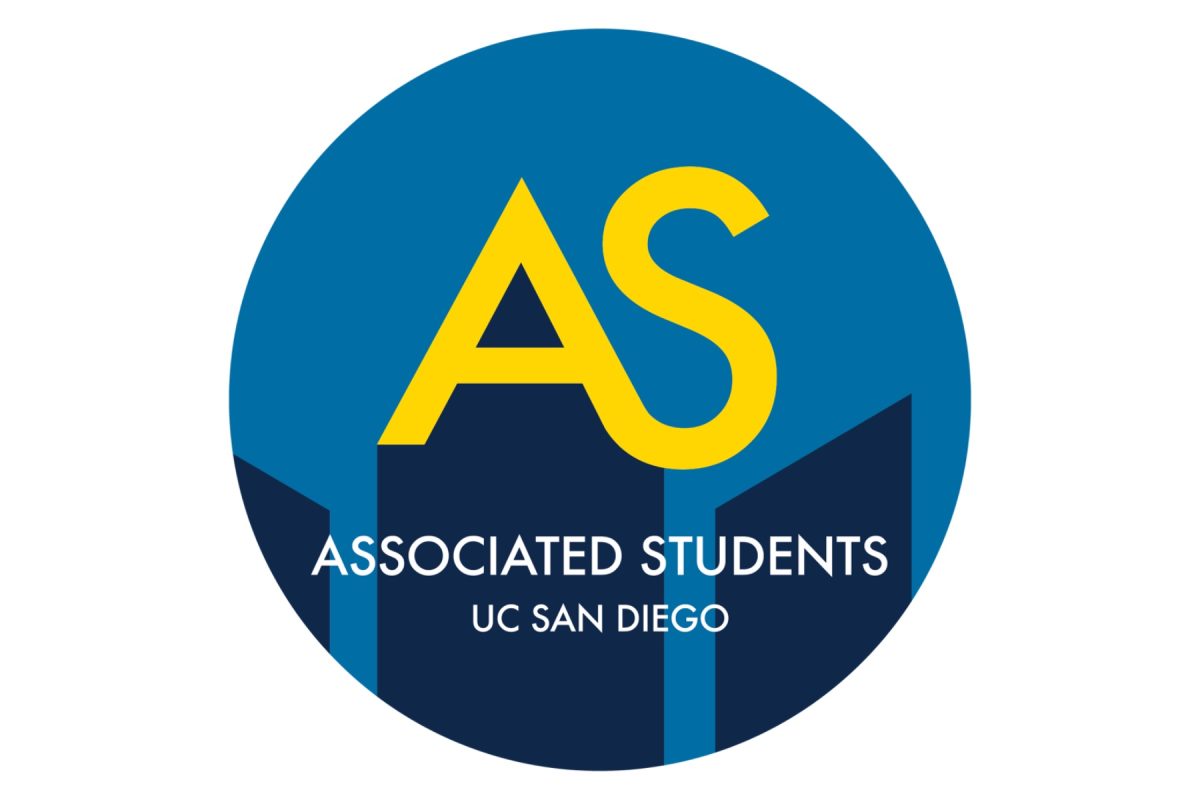Editor’s Note: A chart comparing the Guidance provided by UCOP and UCSD’s policies regarding free expression and a link to the full letter by Michael Drake can be found on the online version of this article.
A directive sent out to the Chancellors of the University California called on each campus to amend and or update their policies regarding protest activity. President of the University of California Michael Drake signed the letter on Aug. 19.
The letter specifically called on the prohibition of the following activities: the construction of unauthorized structures, the restriction of free movement, the act of masking to conceal one’s identity to intimidate or to evade identification when violating laws or policies, and the refusal to reveal identity to University officials on University property under certain circumstances.
In his letter, Drake acknowledges that many campuses already have policies regarding these restrictions in place but asks campuses that do not have these policies to “develop and/or amend” accordingly as soon as possible. The list provided by Drake includes descriptions of said policies but states that Universities can use different verbiage.
These changes to protest policies follow the Gaza Solidarity Encampments that spread across US college campuses last spring. The encampments led to varying responses across the UC system. For example, UC San Diego’s encampment ended with a police raid that resulted in 64 arrests, while UC Riverside’s encampment ended peacefully after negotiations with the encampment and the university.
Associate Director of Media Relations of the UC Office of the President Ryan King explained the UCOP’s position to The UCSD Guardian. “Freedom of expression is a fundamental right and core to the University of California’s mission. While most protests on our campuses are peaceful and lawful, over the past year, some were not and violated University policies,” they said.
The letter also refers to the tiered response the UC system follows when violations of local, state and federal law or UC policies occur. The tiered response is as follows:
- First, those in violation of policies should be made aware of their transgression and are asked to change their conduct. If they agree, then there will be no escalation.
- If there is no compliance, they will be warned about potential consequences, and the UC Police Department and/or Campus Fire Marshal may issue an unlawful notice/announcement, orders to disperse, orders to identify oneself, or other such orders.
- If there is still no compliance, people may be cited, detained, or arrested for unlawful behavior. The University notes that UCPD or other state or local law enforcement agencies may be used in this tier.
Finally, the end of the tiered response notes that those affiliated with the UC system who are arrested must then be evaluated for potential violations of policy.
UCSD’s general webpage on free expression among students can be found at freespeech.ucsd.edu, and their specific policies on prohibited conduct can be found linked on our website.
King stated that the University is still committed to students’ right to freedom of speech.
“As President Drake has made clear, the intent of these actions is to reaffirm our commitment to free expression and respectful debate, while protecting the rights of all community members to teach, study, live, and work safely so that all members of the University community may thrive.”










